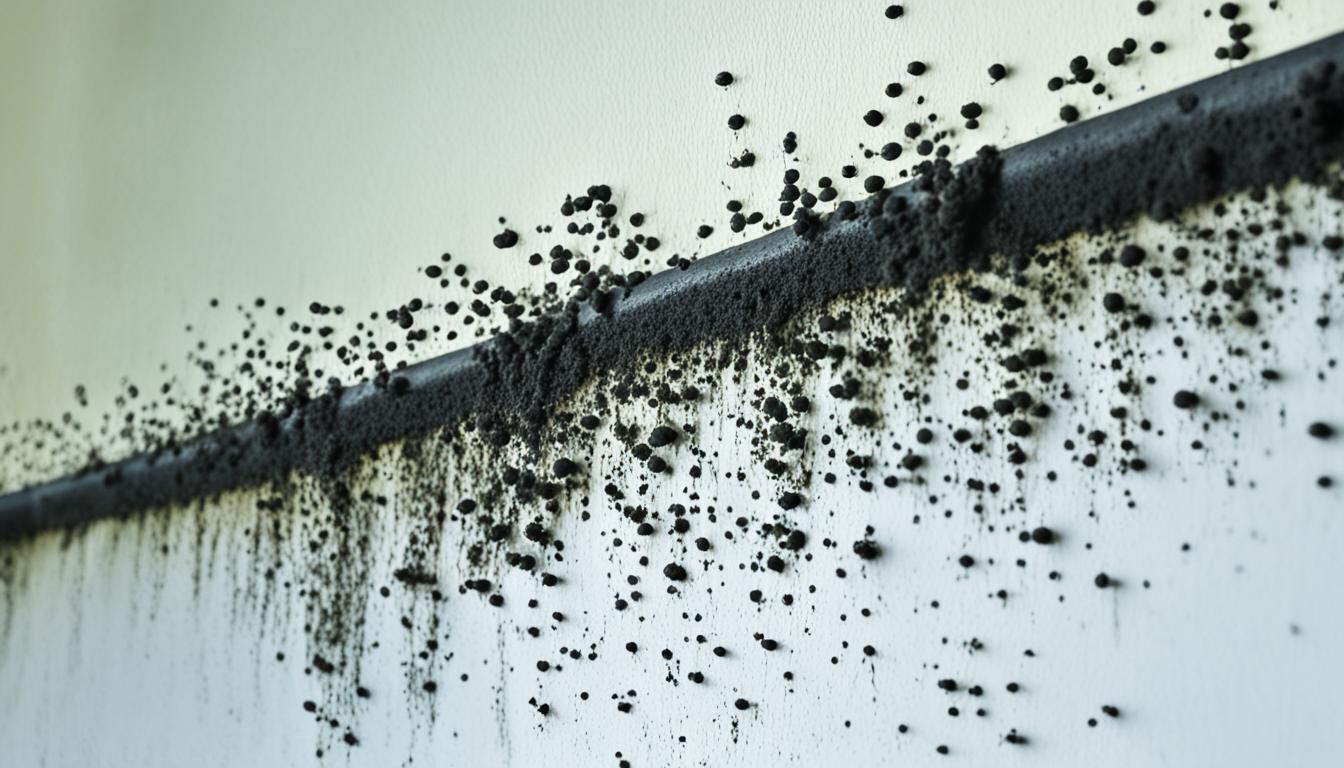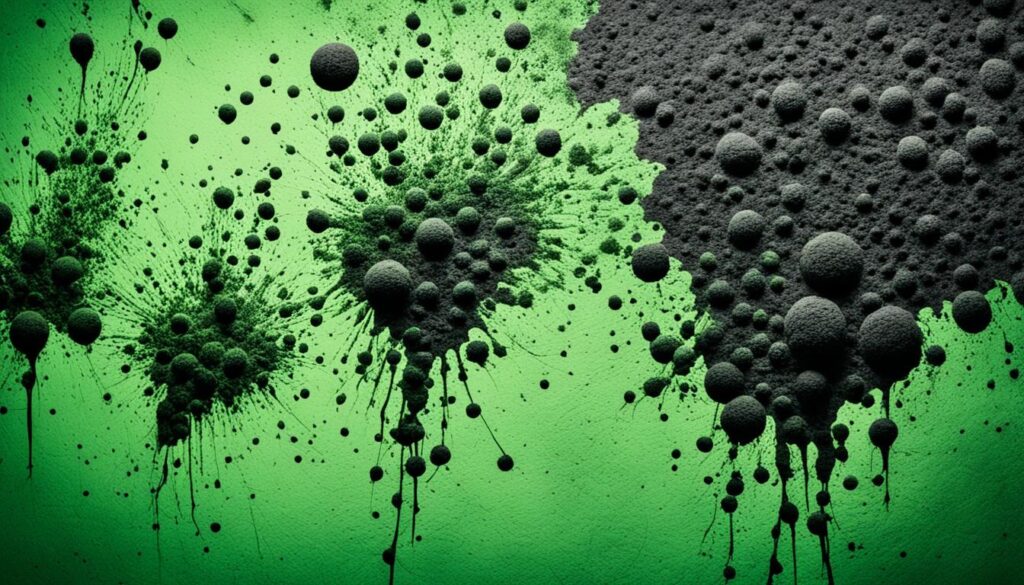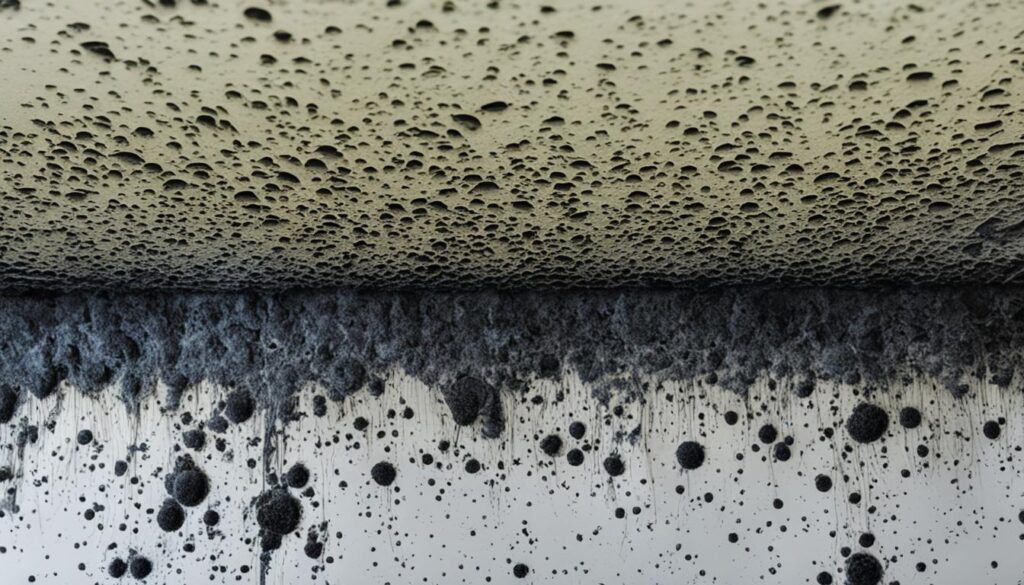
Health Effects of Black Mold Florida: Risks & Safety
Black mold is a common issue faced by many residents in Florida. Not only does it pose a threat to the structural integrity of homes and buildings, but it can also have serious consequences on your health. Understanding the health effects, risks, and safety measures associated with black mold is essential for protecting yourself and your loved ones.
In Florida’s warm and humid climate, black mold thrives, making it a widespread problem. Exposure to black mold can lead to a range of health issues, particularly for individuals with allergies, asthma, or weakened immune systems. The spores released by black mold can trigger respiratory problems, allergic reactions, and other complications.
To ensure your safety, it’s essential to be aware of the symptoms of black mold exposure. Common signs include persistent coughing, sneezing, wheezing, and itchy eyes or skin. If you experience any of these symptoms, especially when at home or in affected areas, it’s crucial to take immediate action to address the issue.
Key Takeaways:
- Black mold is a prevalent issue in Florida, given its warm and humid climate.
- Exposure to black mold can lead to respiratory problems, allergic reactions, and other health complications.
- Common symptoms of black mold exposure include coughing, sneezing, wheezing, and itchy eyes or skin.
- Prompt action is necessary to address black mold issues and protect your health.
- Seek professional assistance for proper assessment and remediation of black mold problems.
Understanding Black Mold: Causes and Symptoms
Black mold, also known as Stachybotrys chartarum, is a type of toxic mold that can pose serious health risks when present in your home or workplace. In this section, we will explore the causes behind the growth of black mold in Florida and provide an overview of the common symptoms that may indicate exposure.
Black mold thrives in moist and humid environments, making Florida an ideal breeding ground. The warm and damp climate in the state provides the perfect conditions for mold growth. Leaking pipes, water intrusion, and poor ventilation are common culprits that contribute to the development of black mold.
When exposed to black mold, individuals may experience a range of symptoms. These symptoms can vary depending on the duration and intensity of exposure, as well as an individual’s sensitivity to mold. Common symptoms of black mold exposure include:
- Respiratory Issues: Black mold spores can irritate the respiratory system, leading to coughing, wheezing, and difficulty breathing.
- Allergic Reactions: Some individuals may develop allergic reactions, such as sneezing, watery eyes, and skin rashes, when exposed to black mold.
- Headaches and Fatigue: Prolonged exposure to black mold may cause headaches, fatigue, and a general feeling of malaise.
- Throat and Eye Irritation: Black mold can also irritate the throat and eyes, causing soreness, redness, and itchiness.
If you suspect the presence of black mold in your environment and are experiencing any of these symptoms, it is essential to take action. Mold testing and professional inspection services can help identify the extent of the mold infestation and provide guidance on appropriate remediation measures.
“Understanding the causes and symptoms of black mold is crucial in preventing its harmful effects on your health. By recognizing the conditions that promote mold growth and being aware of the signs of exposure, you can take proactive steps to protect yourself and your loved ones.”
– Dr. Sarah Miller, Environmental Health Specialist

Preventing Black Mold Growth
To minimize the risk of black mold in your home or workplace, it is essential to address the underlying causes. Here are some preventative measures you can take:
- Ensure proper ventilation in areas prone to moisture, such as bathrooms, kitchens, and basements.
- Fix any leaks or water intrusions promptly to prevent moisture buildup.
- Maintain indoor humidity levels below 50% by using dehumidifiers or air conditioners.
- Clean and dry any water-damaged materials or surfaces within 48 hours to prevent mold growth.
- Regularly inspect and maintain your plumbing system, including pipes, faucets, and drains.
By adopting these preventive measures and being vigilant for signs of black mold, you can create a safer and healthier living environment for yourself and your family.
Health Risks and Complications Associated with Black Mold
Exposure to black mold can pose significant health risks and lead to various complications. In Florida, where the humid climate provides ideal conditions for mold growth, it is essential to understand the potential consequences of prolonged exposure.
One of the primary health concerns associated with black mold is respiratory issues. The spores released by black mold can irritate the respiratory system and cause respiratory problems, especially in individuals with pre-existing respiratory conditions such as asthma or chronic obstructive pulmonary disease (COPD). These respiratory issues can manifest as coughing, wheezing, shortness of breath, and even severe respiratory infections if left untreated.
Allergic reactions are another common complication of black mold exposure. The allergens present in black mold spores can trigger allergic reactions in susceptible individuals. Symptoms may include nasal congestion, sneezing, watery eyes, itching, and skin rashes. For people with allergies or compromised immune systems, the allergic reactions can be more severe and may require medical intervention.
Furthermore, prolonged exposure to black mold can have detrimental effects on overall health. Studies have linked black mold exposure to neurological symptoms such as headaches, dizziness, difficulty concentrating, and memory problems. Additionally, some individuals may experience fatigue, weakness, and general malaise, which can significantly impact daily life and overall well-being.
“Unchecked exposure to black mold can lead to severe health complications and should be addressed promptly to protect individuals from potential harm.” – Dr. Samantha Walker, Environmental Health Specialist
It is crucial to take prompt action and seek professional intervention when dealing with black mold. Remediation experts can assess the extent of the mold infestation and provide effective solutions for its eradication. Protecting your health and the health of your loved ones should be a priority when facing the risks posed by black mold.

Health Risks and Complications of Black Mold Exposure
| Health Risks | Complications |
|---|---|
| Respiratory issues | Asthma exacerbation, respiratory infections |
| Allergic reactions | Nasal congestion, skin rashes, allergic asthma |
| Neurological symptoms | Headaches, dizziness, difficulty concentrating |
| General malaise | Fatigue, weakness, impact on daily life |
It is crucial to note that the severity of health risks and complications can vary depending on the individual’s susceptibility, the duration of exposure, and the extent of the black mold infestation. Therefore, it is advisable to consult a healthcare professional if you suspect or experience any adverse health effects related to black mold exposure.
Safety Measures and Remediation for Black Mold in Florida
When it comes to black mold, prioritizing safety measures and taking immediate action for remediation are crucial steps to ensure a healthy living environment in Florida. Implementing preventive measures and seeking professional mold assessment and remediation services are essential to effectively deal with black mold. Let’s explore some practical strategies and techniques:
Preventive Measures
- Keep indoor humidity levels below 50% to prevent mold growth. Use dehumidifiers if necessary.
- Fix any leaks or water damage promptly to prevent moisture buildup.
- Ensure proper ventilation in bathrooms, kitchens, and other high-moisture areas.
- Regularly clean and maintain HVAC systems, including filters and ducts.
- Inspect and repair any structural issues that may contribute to moisture intrusion.
Professional Mold Assessment
If you suspect black mold in your Florida home, it is advisable to seek professional mold assessment services. Certified mold inspectors can accurately identify the presence and extent of mold growth, assess potential health risks, and provide valuable recommendations for remediation.
| Benefits of Professional Mold Assessment: |
|---|
| Accurate identification of mold species |
| Evaluation of mold spore concentration |
| Assessment of related health risks |
| Identification of moisture sources and causes |
| Development of a comprehensive remediation plan |
Effective Remediation Techniques
Remediating black mold in Florida requires comprehensive measures to eliminate its presence and prevent recurrence. It is highly recommended to hire professional mold remediation experts who are experienced, skilled, and equipped to handle mold issues effectively.
“Professional mold remediation ensures the safe and complete removal of black mold, minimizing health risks and preventing further damage to your property.”
- Containment: Establishing proper containment barriers to prevent cross-contamination and limit mold spore spread during the remediation process.
- Removal: Complete removal of affected materials and thorough cleaning of contaminated areas using appropriate methods and specialized equipment.
- Drying: Ensuring proper drying and dehumidification of the affected area to eliminate moisture and prevent further mold growth.
- Disposal: Properly disposing of mold-infested materials following local regulations and guidelines.
- Prevention: Identifying and addressing the underlying causes of mold growth to prevent future infestations.
By implementing these safety measures and seeking professional remediation services, you can effectively combat black mold in Florida and create a mold-free environment for you and your loved ones.
Conclusion
In conclusion, the health effects of black mold in Florida pose a significant risk to individuals and their families. Understanding the causes, symptoms, and associated risks is crucial in ensuring your well-being. By being proactive and taking necessary precautions, you can protect yourself from the potential dangers of black mold exposure.
It is essential to prioritize your safety and the health of those around you. If you suspect black mold growth in your home or workplace, seek professional assistance for proper assessment and remediation. Quick action is key to preventing further health complications and maintaining a mold-free environment.
Remember, black mold can negatively impact respiratory health, trigger allergic reactions, and lead to other potential health complications. Therefore, staying informed and knowledgeable about the risks and safety measures is essential. By taking prompt and appropriate steps, you can ensure long-term safety and experience peace of mind in your living or working space.




